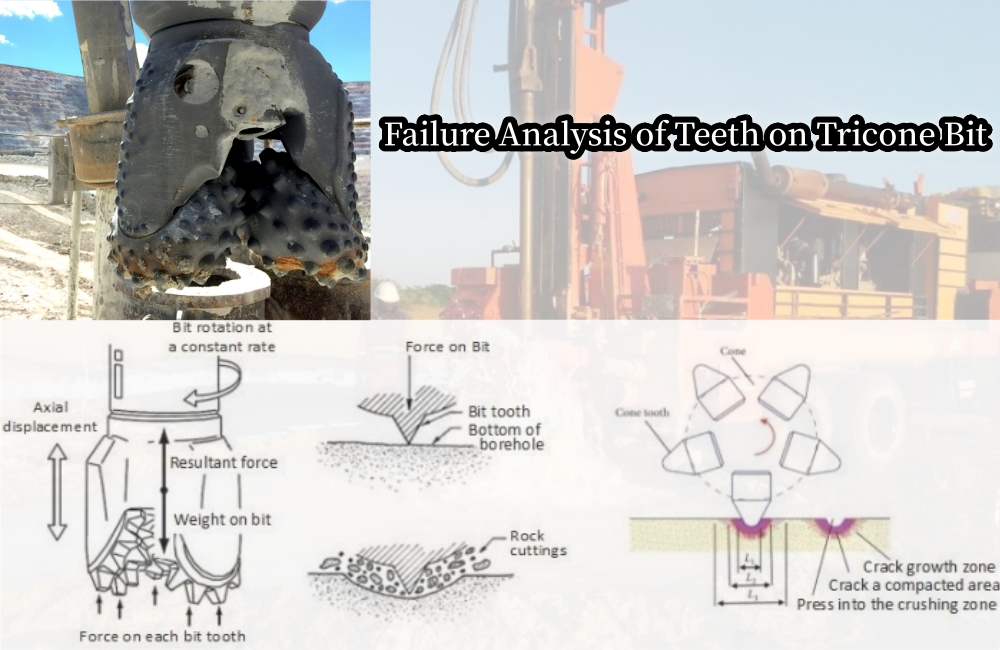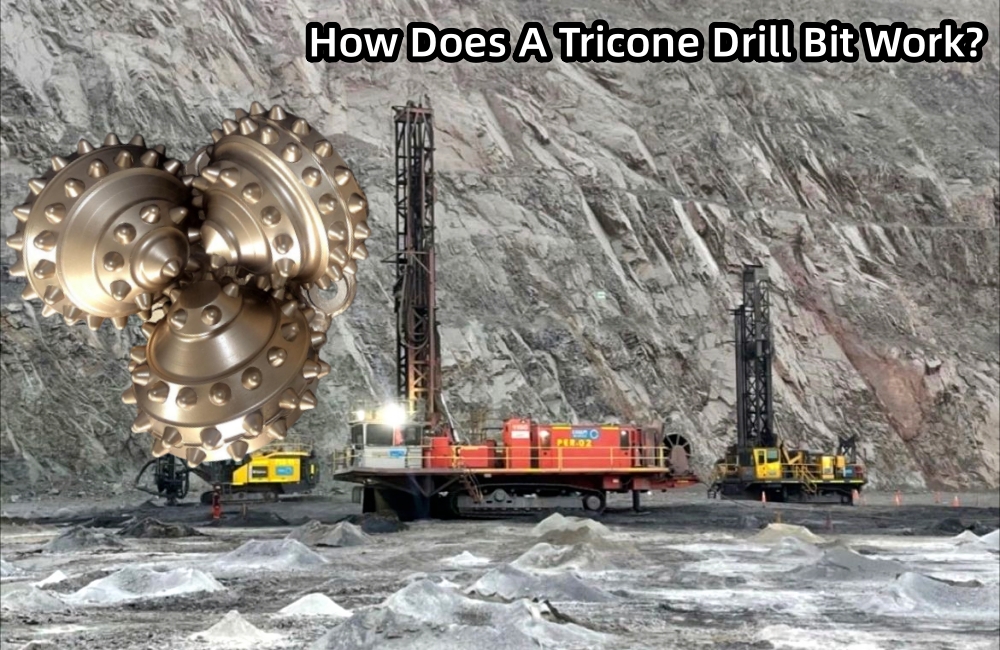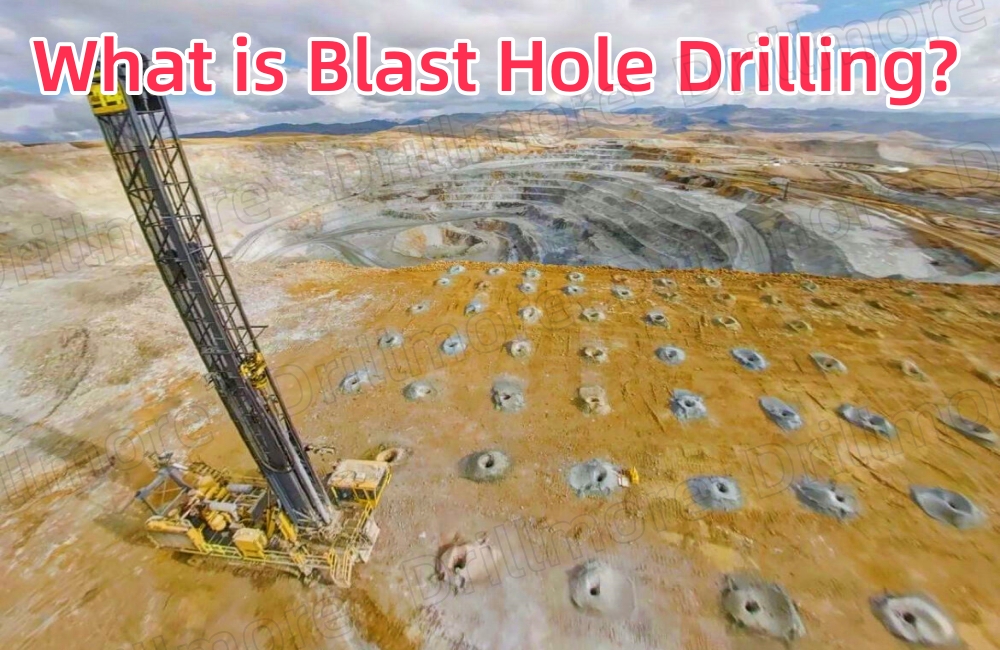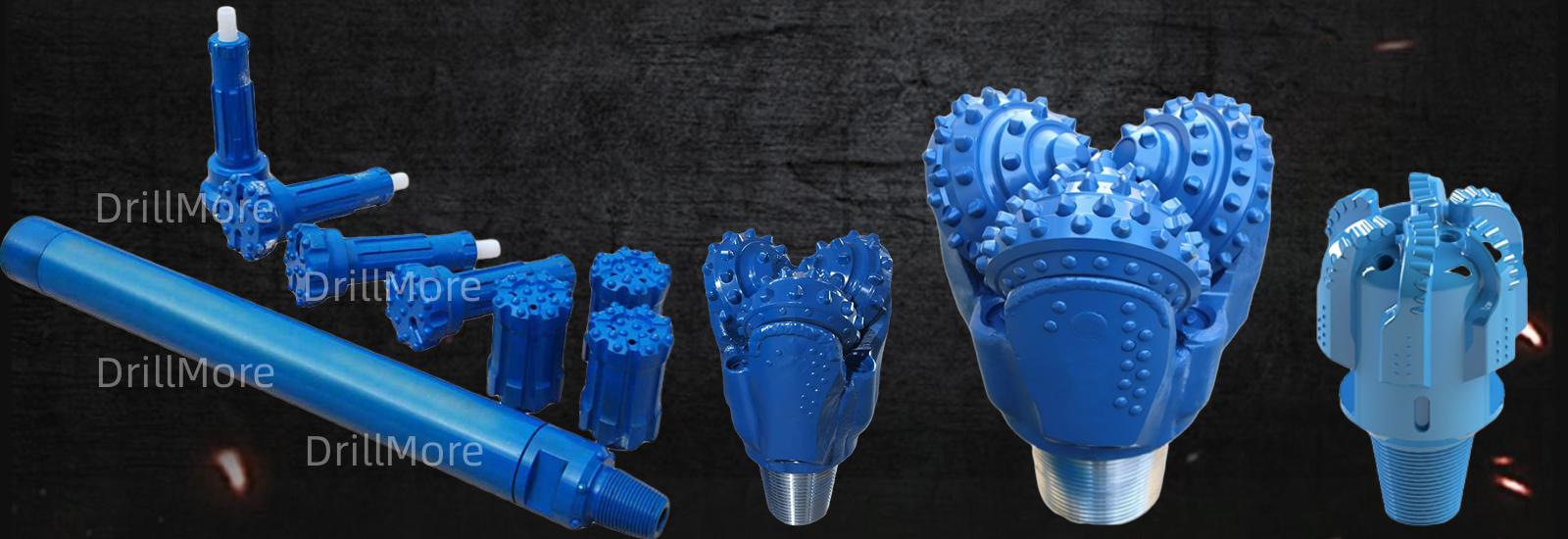Failure Analysis of Teeth on Tricone Bit
Failure Analysis of Teeth in Tricone Bit

Tricone Bits play a crucial role in drilling industrial, and their performance and service life directly affect drilling efficiency and cost. However, in the actual use process, the failure of the tricone bit occurs from time to time, especially the fracture problem of teeth. Now we will analyze the failure of broken teeth on the tricone bit and put forward corresponding suggestions.
Analysis and causes of fracture of teeth of tricone bits
1. Excessive speed
The rotational speed is one of the important factors affecting the working condition of the tricone drill bit. Excessive speed will cause the teeth of the bit to be subjected to excessive shear force and impact force, resulting in stress concentration on the tooth surface, which will lead to fracture. High rotational speed will also exacerbate the frictional heat between the teeth and the rock formation, resulting in thermal fatigue, which further aggravates the fracture of the teeth.
2. Drilling in broken formations
The drilling conditions in fractured rock formations are complicated, and the hardness and shape of the rock mass are different, resulting in uneven force on the drill bit. The teeth may collide with the hard rock mass in the drilling process, causing instantaneous overload and leading to tooth fracture. Meanwhile, the debris in the broken rock will accelerate the wear of the drill bit and increase the risk of tooth fracture.
3. Incorrect selection of drill bit
Different rock formations require different types of drill bits to match. If an unsuitable drill bit is used in a hard and variable rock formation, the bit will have difficulty in withstanding the complex stresses and impacts, leading to fracture of the teeth. Improper selection of drill bits will make them ineffective in breaking up rock formations, but increase the probability of tooth wear and fracture.
4. Drilling in very hard and variable formations
In very hard and variable rock formations, the stress environment of teeth is extremely complex. The hard rock formation itself is very destructive to the drill bit, and the many changes in the rock formation make it necessary for the drill bit to adapt to a variety of working conditions within a short period of time, which greatly tests the durability and impact resistance of the drill bit. If the drill bit cannot adapt to such changes, tooth fracture is inevitable.
DrillMore offers the following suggestions for the above situation
1. Reduce the rotational speed
In order to reduce the stress concentration and thermal fatigue of teeth, it is recommended to reduce the rotational speed during drilling. Especially in the area of high rock hardness, reducing the rotational speed can reduce the impact force and friction heat of the teeth, and prolong the service life of the drill bit.
2. Reducing drilling pressure and speed when drilling in fractured formations
When drilling in broken formations, the matching of drilling pressure and rotational speed should be considered comprehensively. Reducing the drilling pressure can reduce the load on the drill bit and make its force more uniform, thus reducing the possibility of tooth fracture. At the same time, appropriately reducing the rotational speed reduces the frictional heat accumulation of the teeth and avoids thermal fatigue fracture caused by overheating.
3. Select different structure of drill bit according to different working conditions
It is important to choose the appropriate structure and material of drill bit for different working conditions of rock formation. In hard rock formations, tricone bits with high wear resistance and impact resistance should be used; in soft rock and broken rock formations, drill bits with better toughness can be selected to improve its adaptability and durability. Reasonable bit selection can significantly reduce the risk of alloy tooth fracture.
Through continuous technological innovation and product optimization, DrillMore is committed to providing customers with the highest quality drilling tools and solutions. We believe that rational bit selection and scientific operation methods can effectively reduce the risk of tooth breakage, improve drilling efficiency and reduce operating costs.
Welcome to contact DrillMore for more information and professional advice, our team of experts will be ready to support you.
WhatsApp: 8619973325015
E-mail: mailto:[email protected]
Your email address will not be published. Required fields are marked with *
















